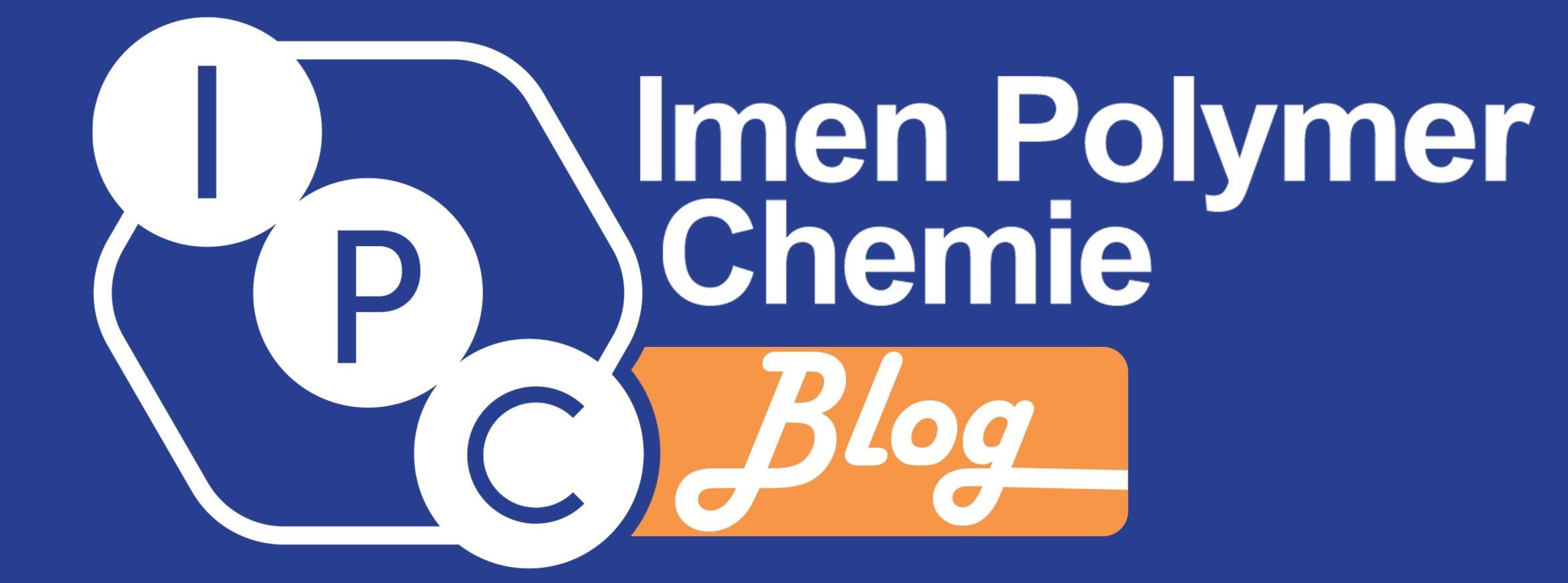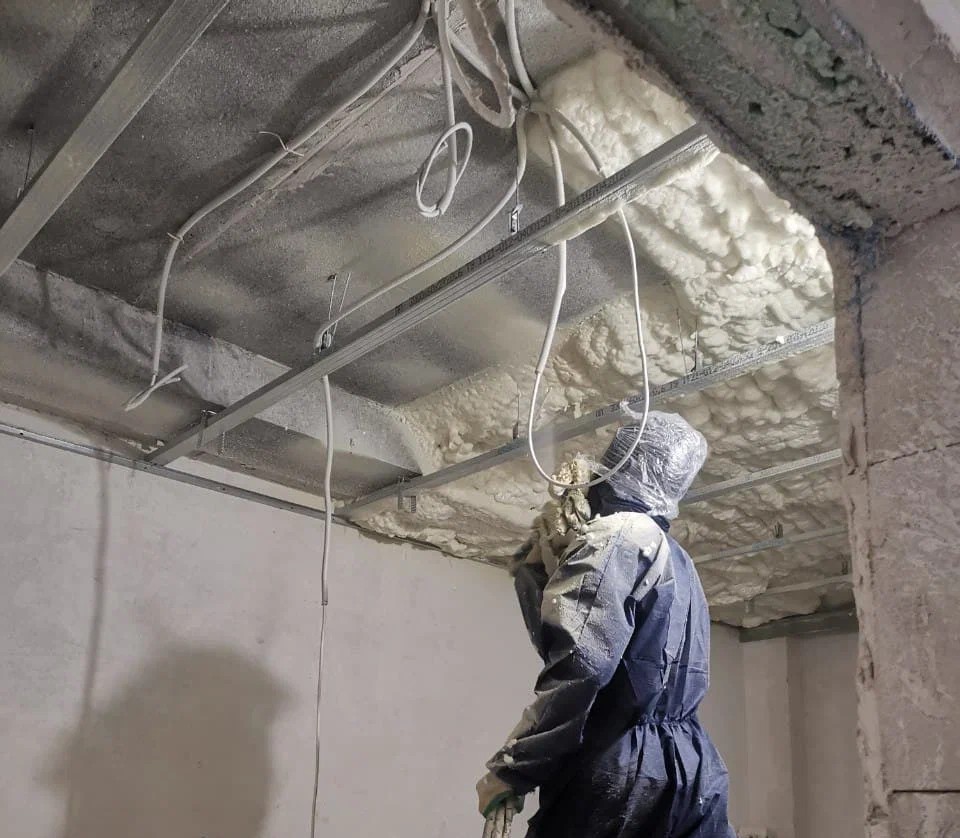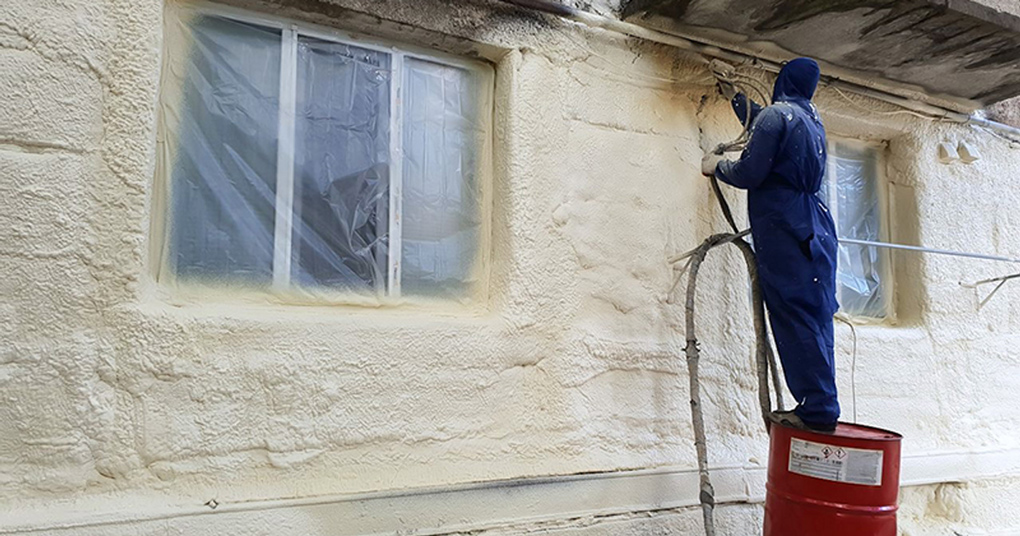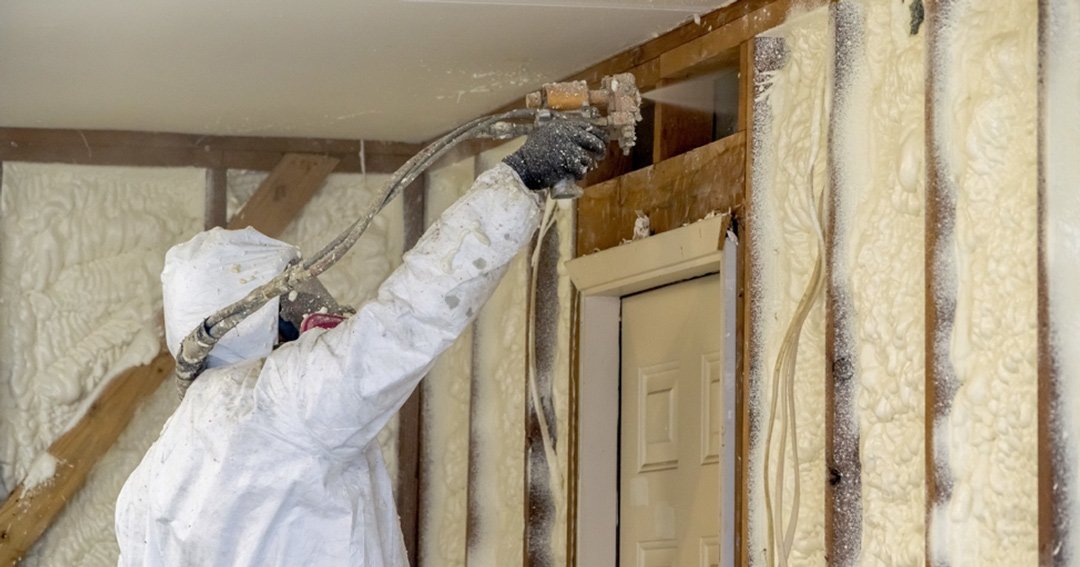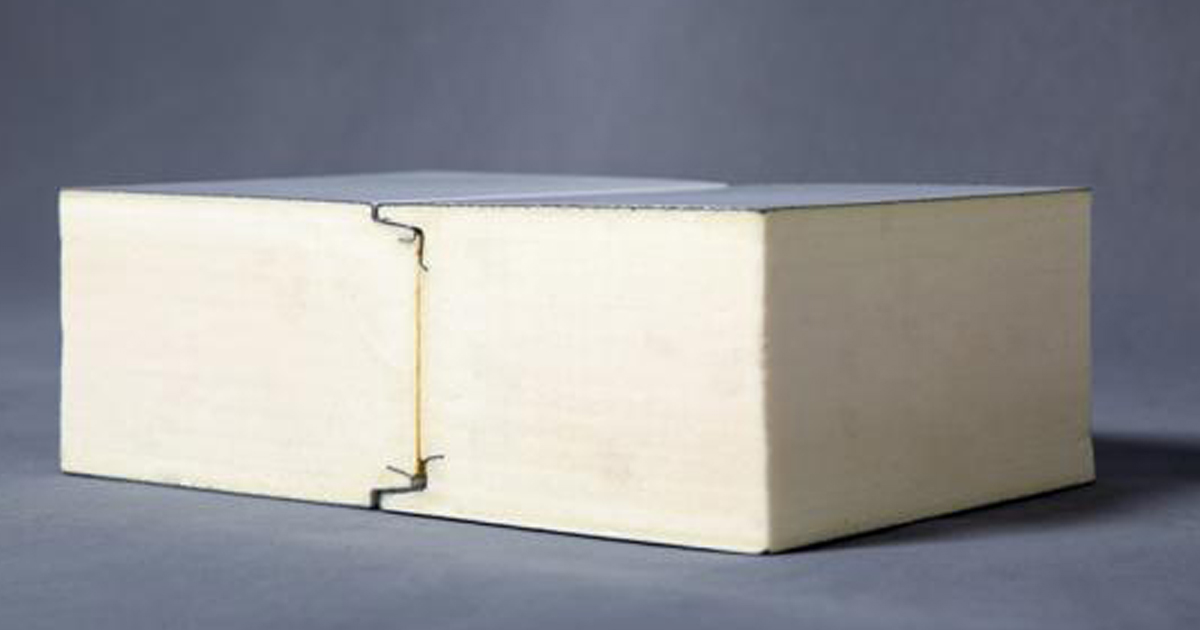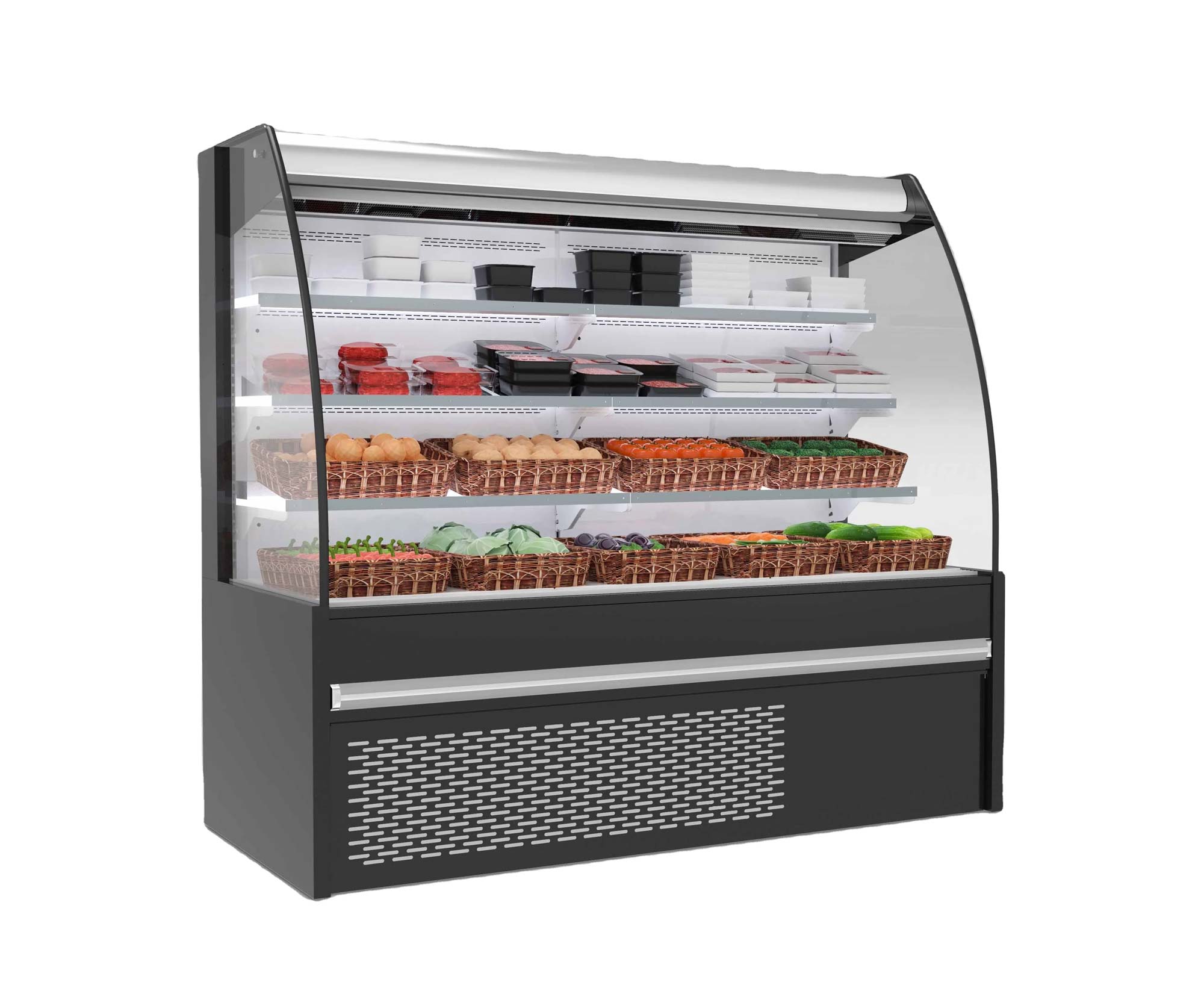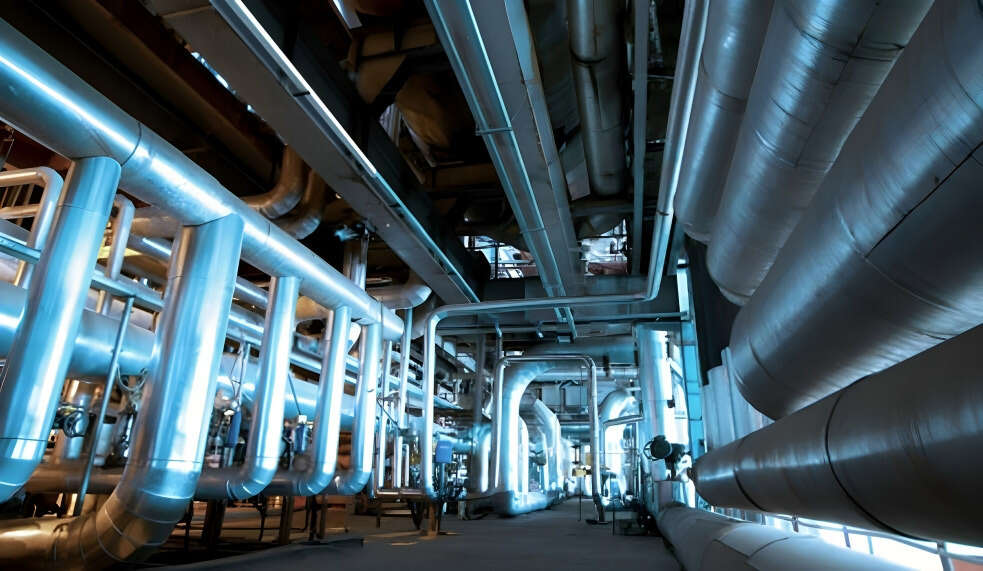Table of contents
In this article, we will talk about different common types of garage insulation materials, their advantages and disadvantages, and help you determine which option supports your needs. We will also cover why polyurethane-based insulation materials are considered one of the most reliable choices and how you can purchase high-quality polyurethane for producing spray foam directly from Iran.
Different types of garage insulation materials
Homeowners and contractors have several insulation materials for insulating garages to choose from. Each of them has unique properties, costs, and installation methods; the most common types of garage insulation are as follows:
1. Spray foam insulation
Spray foam insulation is one of the most popular and effective methods for insulating garage walls and ceilings. It is applied as a liquid that quickly expands into foam, filling gaps, cracks, and hard-to-reach spaces. Spray foam creates an airtight insulation that prevents air leakage and significantly improves thermal performance.
There are two main types of spray foam: open-cell and closed-cell. Open-cell spray foam is softer and provides good soundproofing properties, while closed-cell spray foam has a higher density, offering superior thermal resistance and moisture protection. Spray polyurethane foam is especially suitable for garages because it has great resistance to mold, can be applied quickly, and has a long lifespan.
2. Rigid foam insulation
Rigid foam boards, that also known as foam board insulation, are another effective option for garages. These boards are made from materials such as expanded polystyrene (EPS), extruded polystyrene (XPS), or polyisocyanurate (PIR). They offer excellent thermal resistance and are particularly useful for garage ceilings and walls, especially in humid environments.
Rigid foam insulation is lightweight, easy to cut and install, and provides good protection against air and water penetration. This foam can be used in combination with other insulation systems. However, proper installation is also important to avoid gaps between boards that may reduce efficiency.
3. Polyurethane sandwich panel insulation
Polyurethane sandwich panels are prefabricated panels with a core of rigid polyurethane foam between two layers of protective material, such as metal sheets or composite boards. These panels provide outstanding thermal insulation, mechanical strength, and moisture resistance.
Polyurethane sandwich panels are ideal for both walls and ceilings for garages insulating, especially in regions with extreme weather conditions. They offer a modern, durable, and energy-efficient solution that requires the least maintenance. Their quick installation and superior insulation performance make them a preferred choice for industrial and residential garage projects.

4. Fiberglass insulation
Fiberglass insulation is one of the most widely used materials in residential construction. It is available in rolls, batts, and loose-fill forms. Fiberglass is cost-effective and relatively easy to install, but it is not as effective as other insulation types such as PU spray foam. It has to be mentioned that it’s not an airtight seal; it can absorb moisture, so its efficiency will be reduced over time. Also, this increases the risk of mold growth. Fiberglass might be a good option for garages that are less exposed to extreme temperature changes and moisture issues.
5. Cellulose insulation
Cellulose insulation is an eco-friendly option that is made from recycled paper products. This insulation can be improved with fire-retardant additives and is typically installed as loose-fill insulation, blown into wall cavities and attic spaces. Cellulose offers good thermal and sound insulation properties.
For garage walls and ceilings, cellulose can be an affordable and sustainable option. However, this insulation may settle over time and lose its insulating efficiency and it is less durable compared to polyurethane or rigid foam. In humid conditions, cellulose insulation is not a suitable choice due to the fact that it can absorb water easily.
In addition to the above-mentioned insulating materials, some other materials can be used for garage insulation. Each of them has specific applications, but they are less commonly used compared to the main insulation materials discussed.
Which garage insulation material is right for you?
Choosing the right insulation for your garage depends on several factors, including climate, budget, usage, and long-term expectations. For homeowners looking for the highest performance, polyurethane-based insulation such as spray foam or sandwich panels is the best choice. These materials provide superior thermal resistance, excellent moisture protection, and long-term durability.
Rigid foam is another excellent option if you want an affordable yet efficient solution. Typically, fiberglass and cellulose become a real choice when there is budget limitation (due to the fact that they may not offer the same level of protection and durability as polyurethane systems).
If your garage is used as a living space, workshop, or storage for valuable items, investing in high-performance insulation like spray polyurethane foam can save you money in the long term, by reducing energy costs and maintaining stable indoor conditions.
Polyurethane Products
Buying polyurethane for producing polyurethane spray foam from Iran
Polyurethane spray foam has gained global attention as one of the best insulation solutions for both residential and industrial applications.
Iran has become a key supplier of polyurethane raw materials, offering cost-effective and competitive products for international markets. Companies like Imen Polymer Chemie are polyurethane system houses that manufacture and can export these raw materials, supplying industries with the essential components needed to produce spray foams, adhesives, coatings, and other polyurethane-based products.
By sourcing polyurethane directly from us, buyers can benefit from competitive pricing, consistent quality, and technical support for customized formulations. Polyurethane raw materials from Iran are widely used in garage insulation projects worldwide, ensuring energy efficiency and long-lasting performance.
If you are planning to buy polyurethane material for producing spray foam, working with a trusted manufacturer such as Imen Polymer Chemie ensures that you receive high-quality materials and professional consultation with after-sales support.
Conclusion
Insulating garage walls and ceilings is a smart investment that improves energy efficiency, enhances comfort, and protects your property. With various insulation materials available, homeowners and contractors can choose based on performance, cost, and durability. Among all options, polyurethane-based insulation materials such as spray foam and sandwich panels provide the best overall performance and long-term reliability.
For businesses and manufacturers seeking polyurethane raw materials, Iran is a competitive supplier market. Partnering with Imen Polymer Chemie gives you access to premium-quality polyurethane materials, expert technical advice, and reliable international export services.
By selecting the right insulation and sourcing trusted raw materials, you can achieve excellent results in garage insulation projects.
